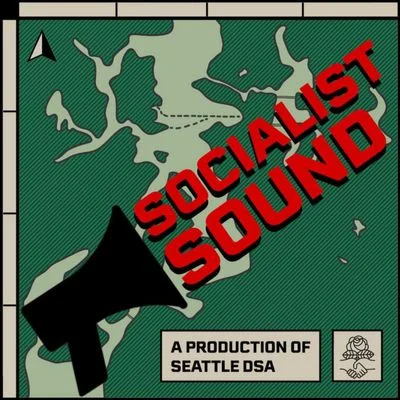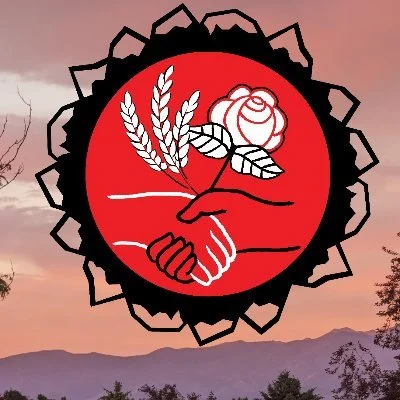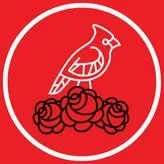

Huge Wins for DSA Initiatives in Tacoma and Bellingham
On November 7th Tacoma voters passed the strongest tenant protections in Washington State, despite the landlord opposition shattering all previous spending records to defeat us. Tacoma DSA launched the campaign and built Tacoma for All into a broad labor-community coalition to win Initiative #1. We overcame efforts by the Mayor and City Council to derail our campaign, first by attempting to co-opt the movement with a watered down alternative, and then with a competing initiative.
Backed by the 8,000 grocery workers in UFCW 367 and the wider Pierce County Central Labor Council, Tacoma for All built a 100-strong volunteer army to knock over 20,000 doors. The victory of Initiative #1, and DSA-endorsed city council candidate Jamika Scott, has transformed DSA into a center of gravity for working-class politics in Tacoma.
Meanwhile, Whatcom DSA helped win two major ballot initiatives: one to raise the minimum wage in Bellingham, and a second to compel landlords pay tenants relocation assistance when rent hikes over 8% force renters to move. DSA plays a central role in Community First Whatcom, the coalition behind both initiatives. After winning two ballot initiatives in 2021, this is the second round of victories for Whatcom DSA and the coalition, cementing the organized left as major force in Bellingham politics.
My first interview is with four fellow leaders of Tacoma DSA, who co-led the initiative campaign with me. My second interview is with Cleveland Harris, a leader in Whatcom DSA and the chair of Community First Whatcom.
Thanks to Jason Corey and Max van Ginneken for mixing and editing the audio for this episode, and to Val Ross for the cover art.


Election Day Deep Dive
Earlier this month, voters nationwide went to the polls. In Ohio, The Right to Reproductive Freedom with Protections for Health and Safety, listed on the ballot as Issue 1, passed with 57% of Ohioians voting to codify a right to an abortion, contraception, and other reproductive rights into the state Constitution, in a clear rebuke to the near total-ban on abortion pushed through by the far-right Republican Ohio Legislature in the wake of the Supreme Court Dobbs Decision. While here in New York, voters elected their City Council members, and DSA-endorsed incumbents, Tiffany Caban of District 22 in Queens and Alexa Aviles of District 38 in Sunset Park, won resounding bids for reelection in their districts. Tonight, we will hear from Julie from Cleveland DSA, about the statewide effort across several Ohio DSA chapters to mobilize voters to the polls in support of reproductive rights. We will also be joined in-studio with Stef from NYC-DSA Electoral Working Group and Anna from the Aviles campaign to discuss the City Council races and what’s in store for DSA electoral politics in 2024.
You can become a DSA member at https://act.dsausa.org/donate/membership/
To get more involved in the NYC DSA Electoral Working Group go to https://socialists.nyc/ or email at electoral@socialists.nyc
To join a phonebank to call for a ceasefire in Gaza, visit https://www.dsausa.org/no-money-for-massacres-phonebanks/


Comradesgiving
Join us this Sunday for Comradesgiving, November 26 from 3:00 to 5:30pm at the Gallatin Labor Temple. We will be sharing food and continuing the conversation around Social Housing and why a Public Housing Authority is needed. We will also be practicing how to write and submit public comment in preparation for the upcoming Gallatin County Commission hearing (Tues 11/28) to determine whether a Public Housing Authority should be established at the county level. Join us for a potluck with comrades. Multiple dietary restrictions are being considered, including vegan and vegetarian options. RSVP here.
Can’t make it, but want to show your support for establishing a PHA? See here for directions for submitting public comment to the Gallatin County Commissioners. Public comment for the County is due by November 27.


Local Residents Rally to Support a Ceasefire in Gaza
Over 200 Wilmingtonians came out on November 19 to show their support for a ceasefire in Gaza and end to Israeli apartheid. The event was organized by members of a local pro-Palestinian group along with Wilmington DSA members and our comrades in Liberate ILM. We urged the crowd to sign the open letter demanding a ceasefire resolution and to commit to boycotting companies that are doing business with Israel as part of the Palestinian Boycott, Divestment, and Sanctions (BDS) campaign. We had several great speakers who shared personal connections to loved ones in Palestine and others who educated the crowd on the role of the apartheid state in maintaining capitalist hegemony in the Middle East, including a speech from our Chair to wrap up the afternoon. DSA provided safety marshals and manned the poster making station so that attendees could create their own sign to show support for human rights and for peace.
What are our demands?
As socialists, we stand against settler colonialism and genocide. We understand the role that Israel plays in the U.S. imperial war machine and that the genocide being perpetuated by Israel is primarily funded by the United States.
Our immediate demands are simple:
- An immediate ceasefire and end to collective punishment.
- Humanitarian aid to Gaza.
- Equal rights for all Palestinians.

How can you get involved?
You can stay up to date on local action and changes to our campaign by bookmarking our Palestinian Liberation webpage.
- Sign the open letter demanding a ceasefire resolution from our local government officials.
- Show up to events! We need your support to show elected officials that they face serious pressure for continuing to stand with an apartheid state.
- Volunteer your time. We need folks to help put on rallies, print fliers, and call people and our representatives. Email the chapter and we can get you set up.


SCAD is Bad
Durham's tenants are in a crisis, and despite proponent’s claims, the developer-and-landlord-led “fix” to the building code known as “Simplifying Code for Affordable Development,” or SCAD, will neither solve or barely improve affordable housing in our community. Rising rents in Durham are displacing residents, mostly from working-class Black and brown communities, to make room for mostly wealthier and whiter tenants. Our elected officials are left to accept the neoliberal myth that “the market will find a solution” and yet, despite having green-lit a lot of new development, affordable housing units remain at a premium. Durham City Council should vote against SCAD.
For the past year, the Council has been considering SCAD – a massive amendment to the building code brought forward by Jim Anthony, a large Raleigh-based developer. The plan proposes many amendments to Durham’s Unified Development Ordinance (UDO), the document that the city provides to inform private developers of all the procedures, zoning rules and districts and standards they will need to follow in order to be allowed to build to code. Cities can use this to get private entities to enact the will of the city. For example, Durham’s current UDO provides a density bonus—where a developer is allowed to build a larger building than would have been allowed otherwise—if at least 15% of units are available for rent at 60% of the Area Median Income (AMI). With the illegality of rent control and public housing, the most effective ways to address the affordability crisis outside of decommodifying housing, the UDO is the city’s sole tool with which it can ensure enough affordable housing options exist for its residents. Even this tool is blunted by NC state law that does not allow UDOs to mandate affordable housing. As such, any changes to affordable housing in the UDO has to meet the needs and come from the working class.
Proponents of SCAD will point to the fact that the amendment will increase the number of affordable rentals by 10 percentage points to 25% at 60% AMI if developers choose to utilize the bonus. This is a necessary and good change for the working class. However, SCAD also decreases how long the units have to remain affordable—reducing the required affordable housing period from 30 years to 5 years for rental units, and first sale for sale units. Both changes effectively reduce the stable housing and wealth-building opportunities SCAD purportedly claims it provides to the working class. On top of the reduction in the period of affordability, SCAD will allow developers to build lower-quality “affordable” units, permitting developers to create slums to squeeze profits out of poorer renters. And once the 5-year affordability requirement expires, landlords can then maximize their profits by evicting the poorer residents to then exploit white-collar tenants with higher rent budgets 5 years later. SCAD’s affordable housing “solution” works out to a temporary reduction (or “investment”) in landlord passive income that is part of the larger community-displacing, environment-destroying luxury developments that developers have been building in Durham, continuing the transfer of wealth from the working class to the capitalist class.
The City Council is set to vote on SCAD before the next council is seated. Voting the entire SCAD amendment as-is into the UDO would be a massive mistake the lame duck council will leave the incoming council to deal with. Not only is SCAD an ineffective solution, it is an anti-democratic cash grab backed by a coalition of landlords and developers who, on average, own 11.8 properties and 6.3 businesses. (Anthony, the primary architect of SCAD, is on record having said about Durham’s poorest residents that “gentrification is necessary to erase the ‘blight’”.) It is no surprise then, that SCAD does not ensure homes for fixed-, low-, and no-income parts of the working class who often fall below 30% AMI. Considering the importance the UDO is to development in Durham and the ramifications changes to it will have for decades to come, the Council must ensure that any changes made to the UDO serve Durham’s working class.
Keeping the 30 year affordability requirement in the current UDO is the bare minimum we must do to keep Durham affordable. Combining the minimum with changes in the UDO to further motivate affordable housing development could finally yield in greater affordable housing built in Durham. In addition to keeping the minimum duration, future Councils must also discern the types of developments it is approving—the only way to ensure Durham has affordable housing is to build affordable housing. Luxury housing, like other forms of wealth, will not trickle down. Continuing what we have been doing by approving fewer, larger, sprawling, poorly connected units that net developers the most profit (as recently done with the Perry Farm project) will only exacerbate traffic, high rents, environmental damage, and the climate crisis. We urge the Durham City Council to vote no on SCAD!


Same old fascists can’t co-opt our pro-Palestine movement

Don’t be fooled: failed politicians and Proud Boys tried to spread antisemitic bile at Harvard. DSA anti-fascists won’t let them
On November 11, 2023, several members of Boston DSA, a mix of non-Jews and Jews, disrupted Shiva Ayyadurai’s antisemitic, “anti-Zionist” rally in Harvard Square. As the flier advertising it made clear, this was no rally in support of Palestinians or anti-Zionism, but a rally to support Shiva’s particular brand of conspiracy theory and the idea of Jews as all-controlling oppressors of working people.
We carried signs reading “Antisemitism is the Anti-Zionism of Fools” (a play on the old quote “Antisemitism is the socialism of fools”), “Pro-Palestine, Pro-Jewish, Antifascist” and others. We did this because we find antisemitism repellent, and we find it repellent that Shiva would co-opt the suffering and death of Palestinians for his own ends in this manner. And, we did this to send a message, in deed and not just word, that principled anti-Zionists oppose antisemitism. Jewish, Palestinian, Muslim members of the Harvard and Cambridge communities—indeed, all members—did not deserve Shiva’s spectacle, or the stress and fear that they may have felt as a result of the rally fliers. Indeed, some passers-by thanked us for helping them understand what was happening. Several people who had simply heard about a Palestine rally in Harvard Square spoke to us and were upset and disappointed about the true nature of Shiva’s rally.

We are all experienced antifascists, and we understand the difference between principled anti-Zionism and antisemitism masquerading as anti-Zionism. John Medlar, a well-known Proud Boy who tried to crash a Drag Queen Story Hour in Fall River last year, was Shiva’s livestreamer. Another rallygoer told us that he too was a Proud Boy and a friend of Proud Boys founder Gavin McInnes, and called a member of our group a “homo.” One of us, a Jewish survivor of the Unite the Right rally in Charlottesville in August 2017, was wearing Palestine colors with a Star of David necklace, and was asked multiple times by Shiva’s rallygoer fans what was around their neck. Another of us was told by a rallygoer that 60% of Congress has dual citizenship with Israel, a variant on a longstanding antisemitic myth. Several told us that vaccines are a “globalist” (a dogwhistle for Jewish) population control plot. In no way is any of this Palestine solidarity or helpful to the people being murdered in Gaza.
We encourage readers to attend rallies for Palestine and a ceasefire that are sponsored by legitimate coalitions and organizations such as the Boston Coalition for Palestine and Jewish Voice for Peace, and to contact their representatives in support of the Ceasefire Now resolution. Unfortunately, right now, with the increased attention to Palestinians’ oppression and many new people in the movement, the antisemitic far right will do what it often does, and try to inject its ideas into the movement through spreading them to well-meaning people (some of them new activists, English language learners, and/or people new to North American cultural contexts) who don’t realize the full implications of certain framings, terms, or images. If you see a friend repeating things that seem off (like suggesting that Americans need to be freed from Israeli dominance, or that Israelis or Jews are “unbelievers” in some way, or using Jewish symbols like the menorah to signify something bad, or using the neo-Nazi phrase “Zionist Occupied Government”), talk to them about it! That’s how we build healthy movements.
No to antisemitism, no to anti-Palestinian hatred, no to Islamophobia, no to fascism!
We repeat here the points from the educational fliers that we distributed on site:
We are supporters of a ceasefire in Israel/Palestine. Many of us are longtime Palestine solidarity activists. We oppose antisemitism, Islamophobia, anti-Palestinian hatred, and fascism.
The rally we are here to oppose claims to be an anti-Zionism, pro-worker rally. However fliers advertising it intertwined the Star of David with a dollar sign as the chain in a pair of handcuffs, accusing “Zionists” of enslaving workers throughout the world. The use of a plain Star of David in this way is unambiguously antisemitic.
While Zionism is an ideology and there is nothing intrinsically antisemitic in anti-Zionism, there is a long and unfortunate history of antisemites using “Zionist” and “Zionism” as antisemitic dog whistles, dating back to Willis Carto’s Liberty Lobby in the 1950s.
Shiva Ayyadurai, who called the rally that we are here to oppose, has spoken at several far-right rallies in the Boston area since 2017, speaking alongside notorious figures such as the violent neo-Nazi/former Proud Boy Kyle “Based Stickman” Chapman, Proud Boy and convicted 1/6/21 Capitol attack leader Joe Biggs and Patriot Prayer leader Joey Gibson. For more on this era of fascist activity in Boston, see this 2019 piece.
One of the local rallies he spoke at was the 2018 Proud Boys rally in Concord, MA. The Proud Boys have become well-known as one of the groups that led the attack on the Capitol on 1/6/21. Massachusetts Proud Boy John Medlar is a long-time collaborator of Shiva’s.
Shiva is a conspiracy theorist who testified at “election audit” hearings to claim the 2020 presidential election was stolen from Donald Trump
We find it grotesque that Shiva is co-opting Palestinian suffering and death in this opportunistic, antisemitic way. As principled anti-Zionists, ceasefire supporters, antifascists, we say no.



Capitalism Can’t Stop COVID
Six months ago, President Biden ended the pandemic state of emergency and declared COVID over. From the way government officials and the media are – or more accurately, aren’t – talking about the pandemic, it might seem one has no choice but to believe that Biden was right.
Except that the pandemic is not over. By what metric was Biden measuring? Hospitalizations? Deaths? For the week ending September 16, the U.S. had >20,000 covid hospitalizations and >1500 covid deaths (over half the deaths on 9/11). These are both likely significant underestimates due to inadequate case testing, counting, and reporting across the capitalist world. Indeed, these inadequacies are often exacerbated by active suppression – for example, in the UK, an email was recently leaked in which hospital workers were directed by hospital administration not to test for COVID if presenting with symptoms, because it might result in workers “remaining home longer.”
Certainly Biden’s declaration wasn’t based on heartening new evidence about disability from long COVID, which, contrary to popular media coverage, scientific studies have consistently shown is both common (at a well-established incidence rate of at least 10% for each case of COVID) and debilitating (a recent study showed that many people with long COVID report a worse quality of life than people with Stage IV lung cancer). And recent data suggests that long COVID may even be more common in vaccinated people who had mild cases and were infected since the emergence of Omicron.
So why Biden’s declaration, and why aren’t we hearing about any of this?
The start of the COVID pandemic brought both a clarifying look at the failures of capitalism and a hint at how things could be different. From very early in the pandemic, we have known what interventions would be effective, and could even end the pandemic altogether: distribution and mandating of effective masks, contact tracing to understand disease spread, and quarantines in the case of actual or suspected COVID cases with guaranteed paid time off. Some countries, in particular China and other countries that have previously had to manage epidemics, implemented some or all of these interventions from the very start of the pandemic.
Unfortunately, many of these measures require political will and a government willing to intervene for people’s wellbeing; we have neither in the United States, where institutions are utterly at the command of capital and ordinary people are deservedly skeptical of those institutions. To instate these measures adequately would necessitate the nationalization of key industries, the complete transformation of our tattered welfare state (both of which we call for in the DSA national platform), and a willingness to take bold action to stop right-wing misinformation. These propositions would be utterly unthinkable to America’s capitalists, who fought tooth and nail the meager stimulus checks, rent forgiveness, and brief extension of unemployment benefits, all of which were simply too inconvenient and unprofitable to keep up.
This is the root of the current messaging and media strategy. If it’s unprofitable and inconvenient for capital to actually address and stop the pandemic, then it becomes necessary to convince people to live with it – to continue working and spending, to keep the ever-important economy chugging along, with no regard for the number of lives sacrificed at its altar.
Despite posturing as “pro-science” while Trump was in charge of managing the pandemic, the Democrats have quickly adopted a stance of soft pandemic denialism that does nothing to substantively address, or even really acknowledge, the issue. Rather than acknowledge that adequate pandemic precautions are only possible at a societal level and act accordingly, they tell the working class that they may keep themselves safe as a matter of personal choice. This is reminiscent of the Democrats’ soft climate denialism, in which they adopt rhetoric that climate change is real while catastrophically failing to acknowledge the gravity of the situation or the radical measures necessary to adequately address it, instead shifting the burden of responsibility to people’s individual choices to recycle or bike to work.
It’s no coincidence that we have one of the highest death rates of any country in the world, at 3,331 deaths per million people for the entire pandemic – a death rate of 0.33% of the entire population. By contrast, China, a country both larger and more densely populated than the U.S., has a death rate of 85 deaths per million. Of course, COVID deaths in the U.S. are not evenly distributed throughout the population. Like many other societal inequities, COVID and its outcomes disproportionately affect poor people, people of color (especially Black, indigenous, and Latino people), people with disabilities, and other marginalized people.
In DSA, we recognize both the social inequities revealed by the pandemic and the new world it reveals and necessitates. We also recognize that we cannot follow in the footsteps of the Republicans or the Democrats, both of whom have communicated clearly that under capitalism, human life has no value except that which it is able to produce for the ruling class. We are fighting for a radically transformed world in which profits don’t necessitate the unchecked spread of a pandemic, and we must reflect that world, to the greatest degree possible, in how we organize now.
To that end, NC Triangle DSA has written and passed a resolution creating a pandemic policy that uses layers of protection – including mandated masking, air filtration, testing, vaccinations, case reporting, and staying home when sick – to keep our events as COVID safe as possible. We welcome all the most vulnerable at our meetings, and we want you to know that we will help keep you safe. We are fighting for a world where all of us can be safe, healthy, and liberated – but to do that, we must build a mass movement. Join us in our fight for a better world!


Our chapter has not publicly recorded resolutions for three years


Ceasefire is a first step towards justice at home and abroad

